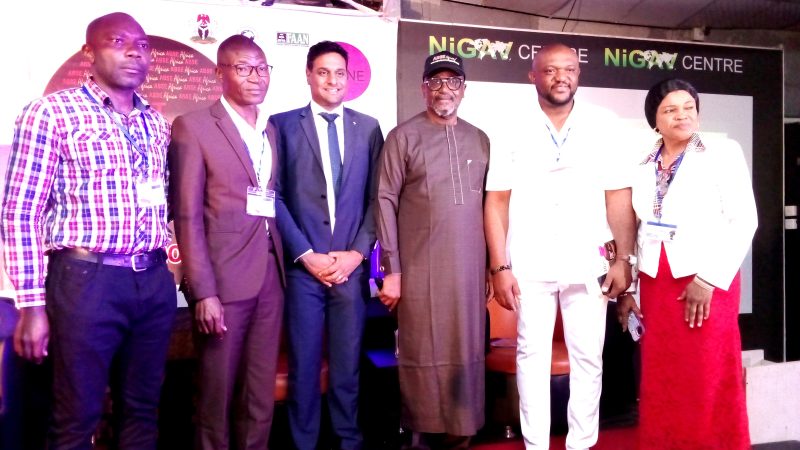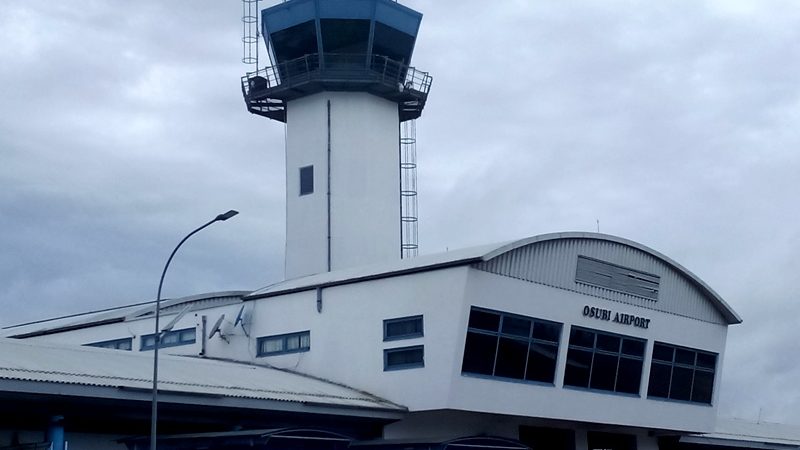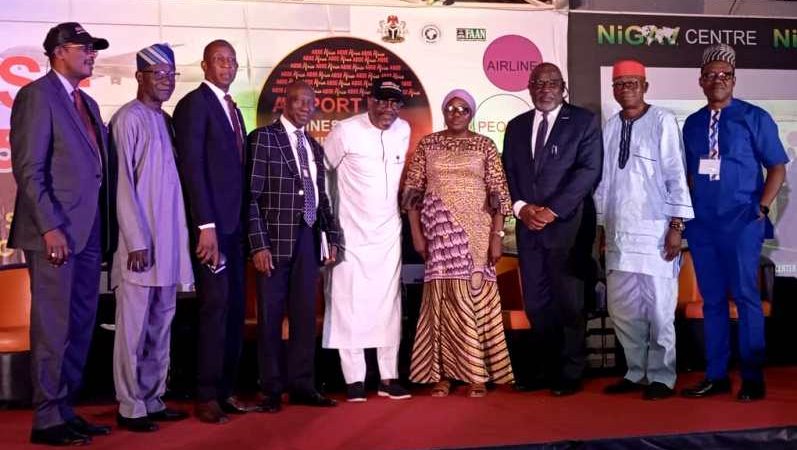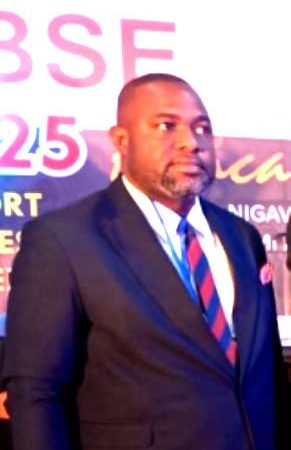NiMET DG Highlights NiMET’s Experience On Manpower, Brain Drain Issues

The Director General of Nigeria Meteorological Agency (NiMET), Prof. Mansur Matazu has highlighted the experiences of the agency as regards brain drain and manpower issues that have affected the aviation industry.
Speaking in an interview, Matazu said: “For us in NiMet, we don’t mostly suffer; only that some of our staff are young, vibrant and they acquire higher degrees and with that, their marketability increases. At times, we get some of them poached, not internally but by international organizations; but you know something, we don’t see it as a major challenge because we have thousands of qualified Nigerians that can replace them because we imbibe the issue of mentoring.
One thing that we suffer is that because some of our recruitment happens in syndicate; if 30, 40 people come at the same time, that means they would go at the same time. So, under natural attrition, during retirement, you would see about 36 people retiring. One thing that is helping us in NiMet is some of the things that could be done by 10 people ab initio could be done using technology by two persons. So, it is not much a major problem. Besides, if a NiMet Staff got poached by WMO, we feel happy for him as a person and we feel also happy as a country because we should also consider people sending forex home as an input to our economy.”
On the newly established Aerospace University, Matazu said: “Admission is ongoing for students and I have one admission on my phone that I can show you and lectures would start in December.”
“This is the first approval gotten by NUC to start both undergraduate and Masters at the same time. We are starting Masters in Air Transport Management by February 2024 and others. There are also four Masters Degrees in Meteorology.
For the B.Sc Meteorology, some of the practicals will happen at Nimet and certificates will have elements of WMO. For the Air Transport Management and Aviation Business Studies, they will also have partnership with ICAO.”
On international collaborations and endorsements of NiMET, Matazu said: “We have started that Volume Coverage Pattern (VCP) with World Meteorological Organization (WMO) at no cost, but if I tell you, the VCP meeting that we attended, Nigeria was the only black nation because you have US, UK, Spain, Netherlands, eight of them plus Nigeria because we want to show the world that we are not a beggar nation in all ramifications, even in the science of weather and services, we are not waiting for any country.
We just had a meeting with the French Government. We are going to do a programme with them and they were very happy with what they have seen. This provides credibility, trust and relevance and with that, you would get realized by the global community and they suggested Nigeria will help these countries under this United Nations financed Systematic Observation Financing Facility (SOFF). The essence of this SOFF is based on the UN Secretary General’s statement that in the next five years, all citizens in the world must have access to early warning. You have seen what happened in Libya; 10,000 people unaccounted for and more than 6,000 people confirmed dead in one incident; but if these people got early warning, it has been confirmed globally that if people get early warning on any imminent weather hazard, you are bound to reduce casualties by more than 70%. If they get the information one week ahead, it will increase.
Like the way we give our Seasonal Climate Prediction, almost six months in advance, that is a very good lead time and based on this, the UN gathered people, financing facilities, all these development banks like the World Bank, they have contributed money and it is through this money that they said, ‘Okay, bigger nations should help weaker ones.’ That was how they identified Nigeria and we are assisting Niger, Liberia, Sierra Leone, Burkina Faso and also Somalia. This is just the first phase. We are going to do an additional phase and in all these, our staff are getting involved. They are getting more exposed and Nigeria is getting more relevant as a big brother in Africa and in the world generally. We are also getting additional funding also to support our services.”
Matazu further explained NiMET’S efforts on training. “We have two schools – the WMO Regional Training Centre in Lagos and the Mohammadu Buhari Meteorological Institute of Science and Technology in Katsina. The one in Lagos is offering WMO classes certificates of class one, class two and class three equivalent of Diploma, HND and Postgraduate Diploma and the one in Katsina is accredited by the NBTE, offering Diploma in Meteorology and Diploma in Climate Change and we are working with NBTE to get accreditation for HND since we have graduated the first set. So, all the English speaking West African countries and all NiMet staff that you have seen across the country are products of the Regional Training Centre in Lagos. All the Directors of Met Services in English Speaking West African countries are our students and they are performing wonderfully well and that is why every year, WMO sponsors people. Even these Gambians, Cameroonians and the ones from Niger that would come to the centre in the next few days, they would come under WMO fellowship and we are getting revenue in dollars from those participation. So, we are bringing forex into the country and we are bringing credibility and relevance also into the country, including even our Diploma graduates in Katsina. Most of them had gotten direct entry admission for their degrees and with this issue of climate change, we have a lot of government agencies that can absolve them.”
On vandalism of NiMET’s equipment, Matazu said: “Here comes the challenge. At times, before you finish a project, you are already experiencing vandalism. In Port Harcourt, they cut the whole mast from the base. In Lagos, even within the airport perimeter, we recorded vandalism, but we were able to weather through the storm. One, we are working on alternative technology even though it is very expensive that we call Terminal Doppler Radar. We are also devising what we call north-central approach which helps us to study cloud physics over any area in the country. With the cloud physics knowledge, you would know whether cloud could result into microburst and it is from microburst from an entire set of clouds that we could have wind shear. So, we are using multiple approaches to the wind shear just as they are doing in the US. They still have Low Level Wind Alert System (LLWAS) even though they don’t experience vandalism, but they combine it with ladder and then terminal Doppler radar and also the North-Central Approach. So, we engaged a UK partner from the University of Leeds to acquire the knowledge and skill and we have the platform now. We have done the initial test-running of the process and we want to go into large scale to complement the LLWAS. So, it is one of our critical projects and every time, every period you see us running around, trying to get it.
On the issue of vandalism, we engage in community policing and we have seen significant improvement with regards to security and also. FAAN and other paramilitary authorities have been involved and they are helping us a lot.”
On whether or not airlines are complying with weather information from MiMET, he said: “When they say pilot, Pilot-in-Command (PIC), even control tower, Air Traffic Controller (ATC) can’t dictate to them. They give them information and they say at your discretion. So, part of that information is our Met information. Every 30 minutes and real time, there is a screen at the control tower where they give them update if there is any sudden change in weather and I am sure ATC must have warned that pilot about mild wet runway because the moment you take off, even before take-off, we have pilot briefing room where you get our fodder and that is why we are beginning to publish those airlines that collect our folders and we have email platform. So, on the issue of compliance, pilots have the final say and NSIB has already written to us to give them the weather situation in Lagos.”
“Lagos airport is one of our flashpoints and so, you get the best of our staff and the best of our equipment. As you know, almost more than 70% of our flights happen in Lagos and so, you don’t expect anything below standard in terms of our services in Lagos,” he added.







